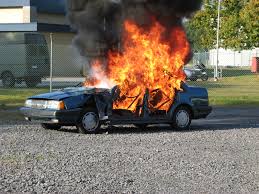California Punishments and Penalties for Malicious Arson
Arson is a severe offense in California due to its destructive and often deadly nature. California law defines arson as the willful and malicious burning of property. Though there are several types of arson offenses defined under California state law, most of them entail allegations of severe property damage, injuries, and death.
California officials and prosecutors are never lenient when pursuing charges against suspects of arson and those found guilty of such kinds of crimes may be subjected to hefty and long-lasting penalties.
To prove malicious arson under California Penal Code Section 451 PC, a prosecutor has to establish that the defendant set fire to or burned, or helped someone burn, a structure, forest land, or any other property. The prosecutor must also prove that the defendant acted willfully and maliciously.
An individual acts willfully when they do the destruction willingly or on purpose. On the other hand, a person acts maliciously when they intentionally do a wrongful act or when they act with the unlawful intent to defraud, annoy or cause injuries to another person.
California law charges arson as a felony. This means that the penalties are severe and may range from prison time to hefty fines or lifetime registration requirements as an arsonist. There is only a single type of activity that is related to arson and that is the unlawful causing of fire. Depending on the circumstances and facts of the case, however, arson can be charged as a misdemeanor instead of a felony in California.
For an individual convicted of felony arson, the sentence may include up to nine years in prison and a possible strike under California’s Three Strikes Law if the arson was considered malicious.
Additionally, a person can be sentenced to more years in prison if they are found to have committed aggravated arson. A conviction for aggravated arson can lead to an addition of up to five years in prison. An individual can be charged with aggravated arson if the defendant has prior arson conviction, some emergency personnel suffered great bodily injury due to the fire, more than one person suffered significant bodily harm in the fire, multiple structures were destroyed, or the defendant used an incendiary device.
Fires causing substantial destruction can often be caused by error or oversight. In case the fire was unintentionally started, the defendant can have a valid accident defense if charged with arson. But if the actions of the defendant were so far outside the norm that they are considered reckless, then the offender can still receive criminal charges.











